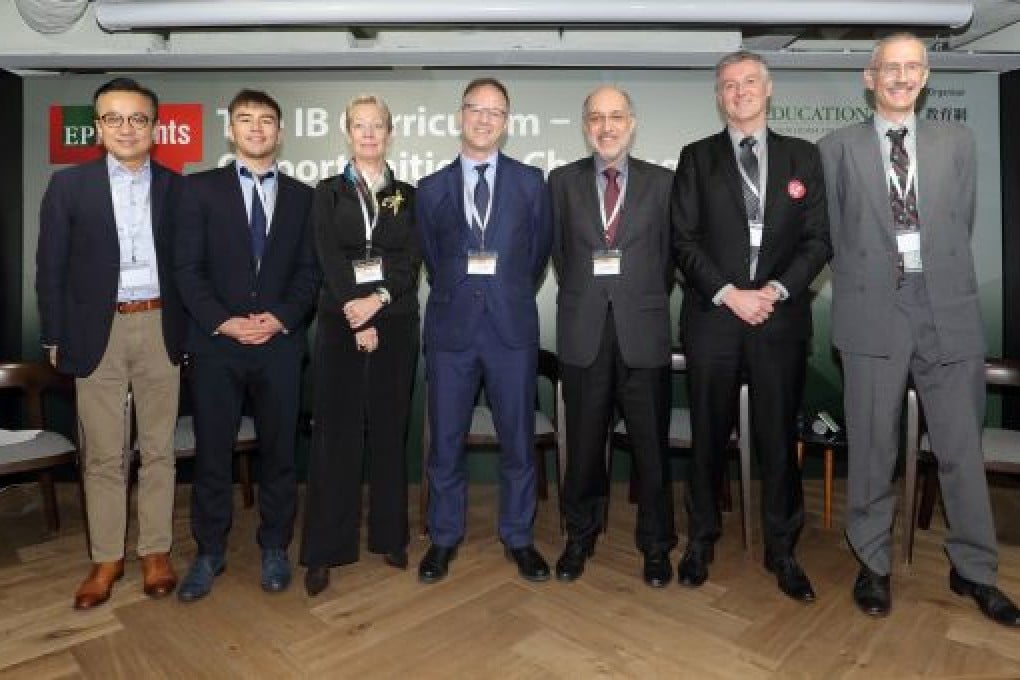
More and more schools are offering International Baccalaureate (IB) education model, so the timing of the EP Insights: IB curriculum seminar could not have been better. Parents who attended the event listened intently to a panel discussion featuring a prestigious group of educators including David Whalley, director of education at the English Schools Foundation (ESF); Annette Brandt-Dammann, principal, German Swiss International School (GSIS); Tim Kaiser, principal, Canadian International School (CDNIS) and Iyad Matuk, director, Malvern College Hong Kong. Organised by Education Post with NTK Academic Group as Platinum Sponsor and the English Schools Foundation (ESF) as Silver Sponsor, panellist explained how the IB ethos encourages students to develop independence and provides a rigorous and challenging learning platform suited to the needs of 21st century learning.
"The critical thinking skills the highly challenging diploma programme equips students with skills and abilities that are valued by universities worldwide," noted keynote speaker David Ollerearnshaw, director of maths and science at NTK Academic Group. Ollerearnshaw also noted the emphasis placed on second language development and a focus on global understanding that prepares students to succeed in an increasingly globalised, demanding and complex world.
Whalley said an IB education prepares today's students to be the successful global citizens of tomorrow. "Across ESF schools we see how involved and enthusiastic students are about their own education," he said, noting the Primary Years Programme (PYP), Middle Years Programme (MYP) and diploma programme (DP), all flow seamlessly into one another.
Whalley also highlighted the IB Career-related Programme (CP), which the ESF first introduced in 2012. This, in addition to the Business and Technology Education Council (BTEC) qualifications cater to students with a specific aptitude for learning, or specific career paths already in mind.
"Offering the CP is another example of ESF's commitment to provide education aimed at meeting the needs of a wide range of learners," Whalley said, stressing that in spite of rumours, the ESF has no intention of dropping the IGCSE (International General Certificate of Secondary Education) programme.
